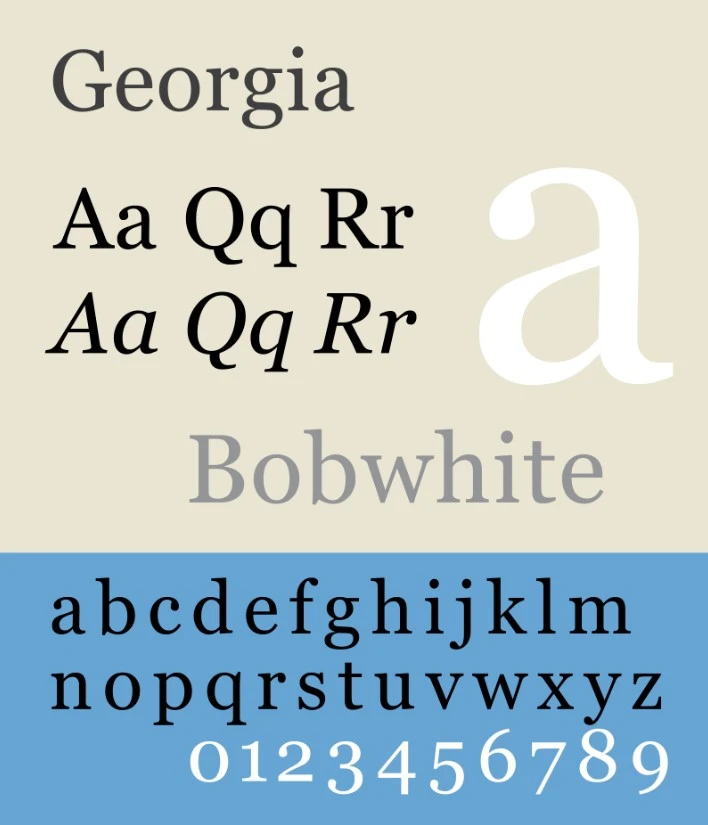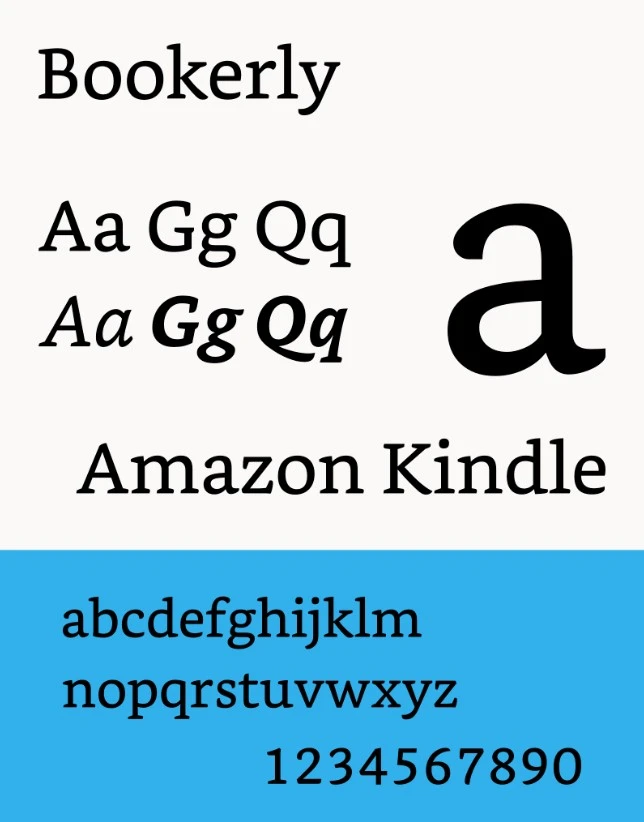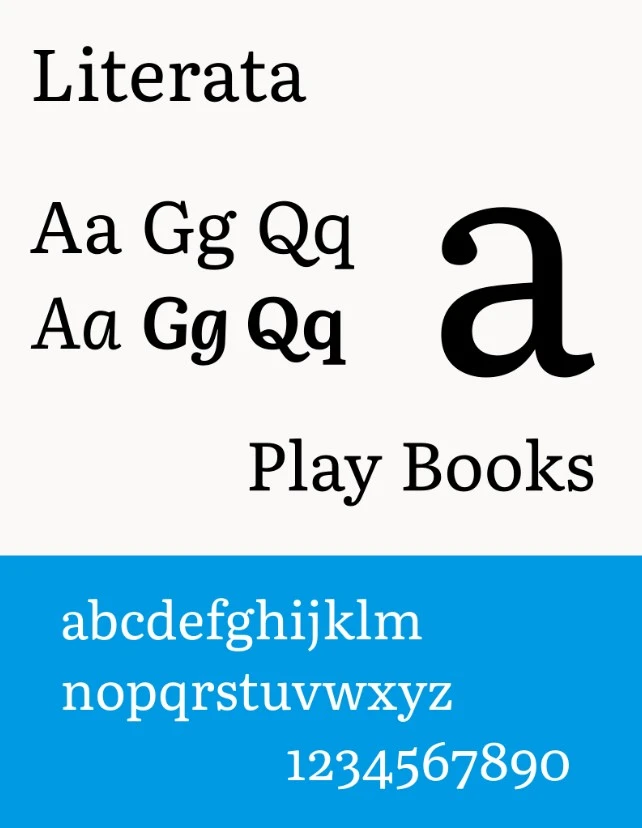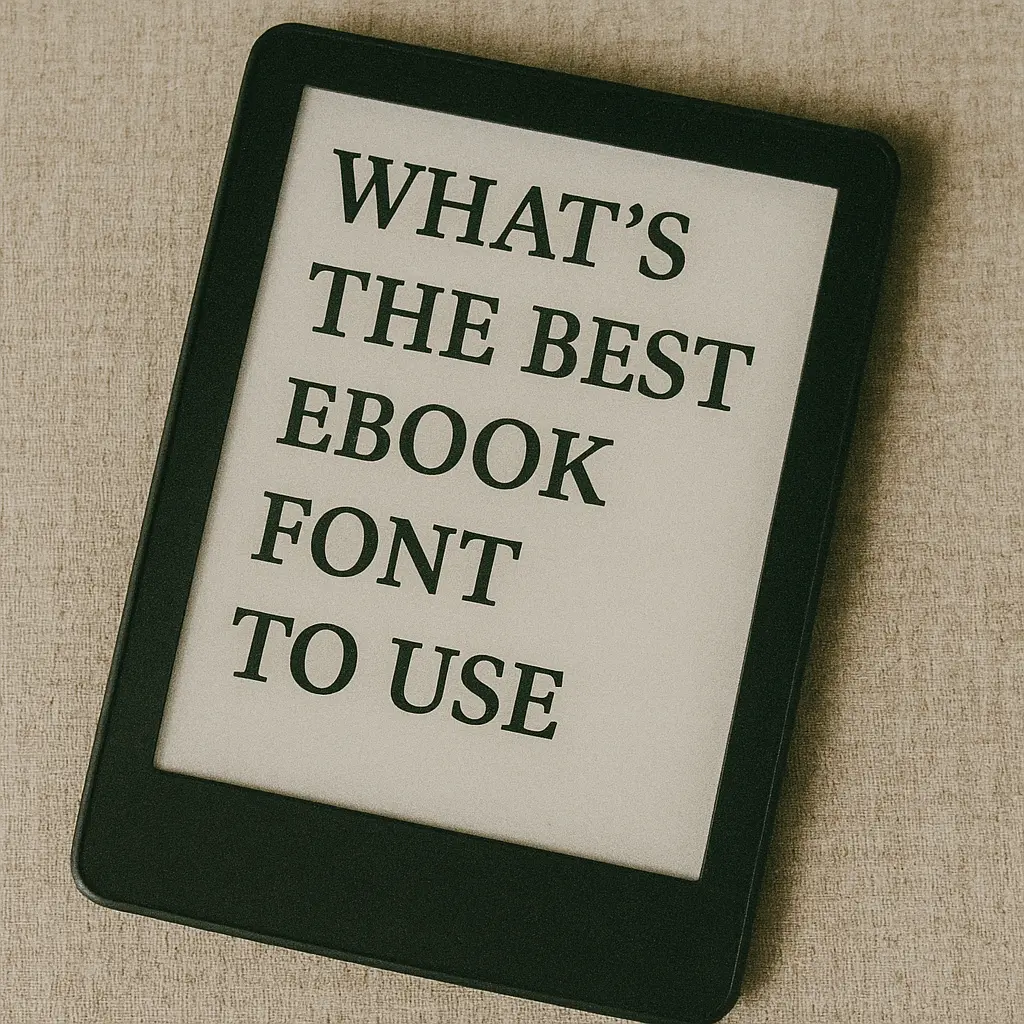Too Long to Read...
The best font for eBooks in 2025 is Georgia, celebrated for its built‑in screen clarity across devices. For Kindle users specifically, Bookerly stands out—it’s optimized for speed and lower eye strain. (Kindle uses it as default.)
Why This Font Wins for eBooks
1. Georgia—The Classic Digital Serif

Georgia was purpose‑designed for clarity on low‑resolution screens, sporting a large x‑height and thickened serifs to stay legible even at small sizes based on Wikipedia. It gives a classic, readable feel, ideal for long‑form content across ePub, PDF, and other formats. Its ubiquity also means compatibility is never an issue.
2. Bookerly—Kindle’s Optimized Powerhouse

Designed specifically for Kindle devices, Bookerly replaced Caecilia as the default font. Amazon claims it helps users read faster with less eyestrain. Tailored kerning, ligatures, and letter shapes make it a modern, “disappearing” font that lets the content shine through.
3. Literata—Google’s Elegant, Device‑Friendly Serif

Google commissioned Literata as the default for Play Books. It’s elegant, highly readable, and scales well across screen sizes. Now open‑source and widely available, Literata offers a fresh alternative for long narratives.
Why Font Choice Matters for eBooks
Readability & Comfort
Fonts like Georgia, Bookerly, and Literata are designed to enhance legibility. They’re screen‑friendly, reducing eye strain and making long sessions easier. Serif fonts also guide the eye gently from one character to the next.
Engagement & Tone
Typography sets a story’s mood. A classic serif like Garamond or Palatino adds timeless elegance. Sans‑serif typefaces like Helvetica or Roboto bring a modern, clean vibe. This subtle nuance reinforces genre and tone (for example, romance vs. thriller) PaperTrue.
Accessibility
Fonts with clear shapes, generous spacing, and open counters (like Verdana or Georgia) are easier on the eyes for all readers —including those with visual impairments or dyslexia. Kindle options such as OpenDyslexic also exist.
Genre‑Based Font Recommendations
Here’s how font choice aligns with top‑selling eBook genres in 2025:
Romance – Elegant Serifs for Immersion
- Georgia, Garamond, Baskerville: Warm, inviting, and easy to read—perfect for readers escaping into love stories. These serifs carry tradition and romance with comfort.
Mystery/Thriller – Clean, Sharp Sans‑Serifs
- Helvetica, Verdana, Roboto: Crisp, neutral fonts keep pace with tension, letting the plot—not the typography—drive the heartbeat.
Sci‑Fi & Fantasy – Readable Yet Atmospheric
- Palatino, Literata, Bookerly (serifs): Aid deep‑reading in world‑building settings.
- Arial, Calibri (sans): Offer a sleek, futuristic feel when needed—for UI cues or sci‑fi vibes.
Self‑Help & How‑To – Clear, Trustworthy Typography
- Arial and Calibri: Modern, approachable, trusted.
- A common editorial trick: use sans‑serif for headings (e.g., Helvetica) and serif for body text (e.g., Times New Roman or Garamond) to aid scan‑reading and credibility.
Business & Finance – Professional and Serious
- Garamond, Baskerville, Minion Pro: Convey authority and polished professionalism in long eBooks or PDF reports.
- For graphics and tables: Helvetica and Arial offer clarity and neutrality in data presentation.
Platform & Format Considerations
| Platform / Format | Font Considerations |
|---|---|
| Kindle (MOBI/KFX) | Defaults to user’s choice or Bookerly. Embedded fonts may be overridden. Best: design around Bookerly and let readers adjust. |
| Apple Books (EPUB) | Renders with Apple’s New York serif by default; users can choose others like Georgia or Palatino. Embed carefully and test across settings. |
| EPUB (Kobo/Nook/Google/Nade) | Stick with standard fonts (Times, Arial, Georgia) unless embedding tested fonts like Literata. Allow reflow and scaling. |
| Fixed layout—embed fonts to maintain design. Use comfortable sizes (~11–12 pt) and legible fonts like Georgia, Palatino, Bookerly. (according to PDF.net) |
Final Takeaway
- Best Overall Font: Georgia—timeless, screen‑optimized, widely compatible.
- Best for Kindle: Bookerly—specifically engineered to ease reading.
- Best Open‑Source Alternative: Literata—modern, elegant, readable.
Why These Matter:
- Readability is king—legible fonts keep readers engaged.
- Tone matters—font supports the mood without distracting.
- Accessibility is essential—clear letterforms mean more inclusive reading.
- Platform differences require flexibility—test across devices and allow defaults.
Conclusion
Choosing the best font for your eBook isn’t just a design decision—it’s a reader experience decision. Georgia remains a go‑to for universal readability; Bookerly leads on Kindle; Literata gives Play Books its visual identity. Tailor your choice to your genre, audience, and format. Always prioritize clarity: let the words carry your story—not the font.
Happy typing … and even happier reading.



